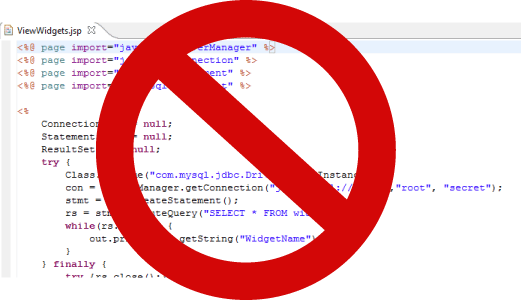The official title of this session is “The Java Community Process – What’s broken and how to fix it”. The panel is James Gosling, Patrick Curran (head of the jcp) and Reza Rahman (member of jcp expert groups and author of EJB in action)
What’s wrong
- Some inherent because so many priorities and agendas. these predated Oracle
- Apache Harmony TCK issue (Apache Geronomo doesn’t pay for TCK because non profit open source. The problem with Harmony is that it has restrictions). Reza would like to see it free, no strings attached after the lawsuit.
- Patrick said Oracle is more forceful than Sun in that they make a stand rather than bicker forever
- Reza said James is too bright but not practical enough :). He views Oracle as being more practical. Reza noted leading is hard and getting people to agree is hard. He views Oracle leading as a necessity because they have the resources to be a JSR lead. James noted being a spec lead is a full time job even if things go smoothly.
- In 2007, Oracle tried to create an organization so sun would have less power. Now that they are in charge, they want to retain ownership. Logical position at least.
- Process issues -greater transparency so don’t have to be a JCP member for read only view
- Reza views a big problem as lack of individual participation in the JCP. Reas the proceedings, blog, be spec leads, etc. Democracy is participatory [yes, but this isn’t a democracy, right after i wrote this Cameron noted SpringSource and Google are leading by example. Reza said that sounds like Microsoft. and it does. Except that Sun copied from Spring extensively. James noted that innovation in the String class would be dangerous]
What could be better
- Reza recognized it is hard to have an independent JCP. It requires resources, a way to move forward without veto bpower, etc
- Patrick noted that all standards groups have these political obstacles because companies or countries have different interests. The fact that they are trying to work together is a good thing.
- Patrick noted things are better than they look. Some groups have mailing lists that be read. Oracle is looking at making things more open and expect to mandate transparency via an open mailing list. Similarly for formally tracking comments. The executive committee has been publishing minutes for several years.
- Patrick noted they are looking at making it easier to join. In particular, creating a simpler legal agreement for non-spec lead roles
- Patrick pointed out standards take time. It is more important to get it right than fast. It is avoiding unnecessary waste that matters
audience questions
- Role of spec evangelist separate from spec lead? Reza said don’t need formal role. Independents on JCP should blog and do this
- More people shipping products dependent on platform? oracle working on balance. Also looking at letting java user groups join so members can contribute
- What can someone do to help without spending a lot of time? Follow JSR interested in. Read the spec and comment without joining group. Mny JSRS are open source comments. Reza listed following jee articles on theserverside and javalobby and leave comments for actual jcp members to read and convey. Similarly for the comment period. [this was my question, a lot of the answers sound quite time consuming to me. Reza did list a short one which I appreciate]
- Developers wait until something is stable to try it because working our own problems. By then it is late in the game to comment. Everyone agreed the proposed final draft and reference implementation IS that

